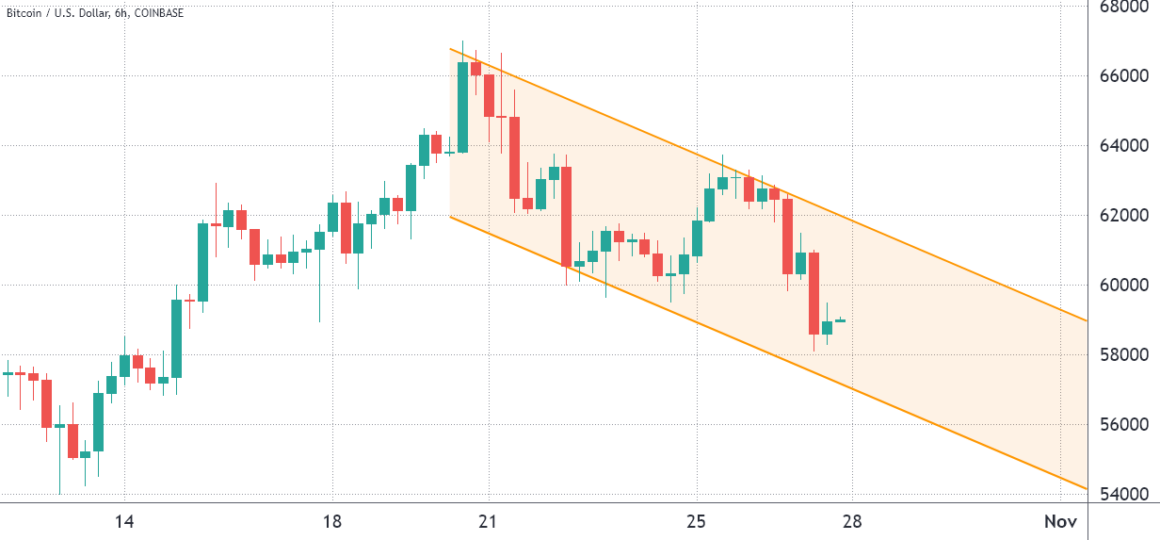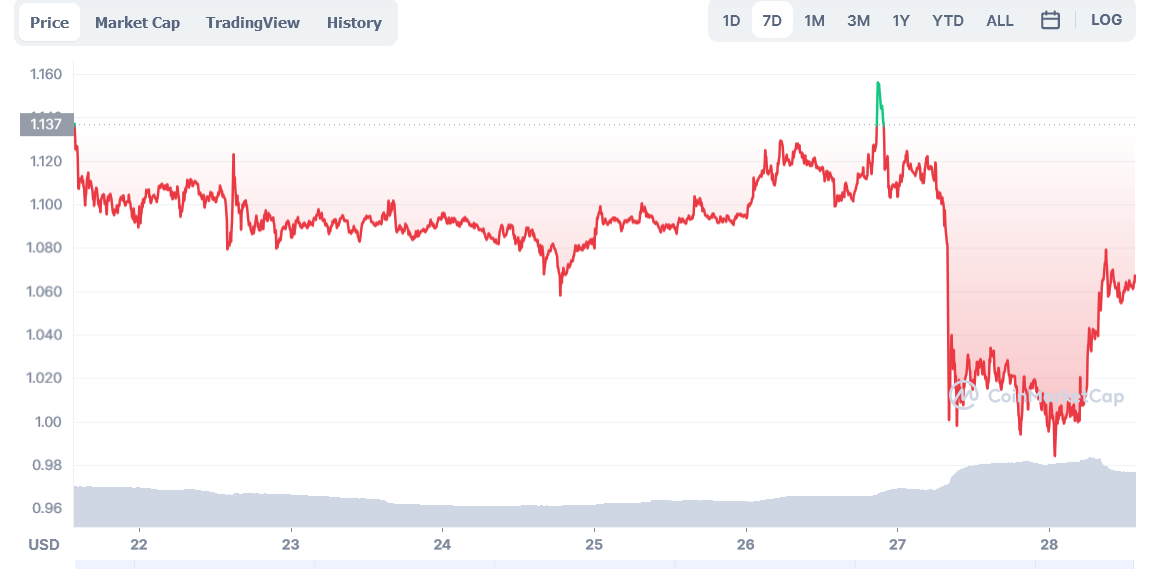In the future, if you are not represented in a court of law it will be difficult to appeal unjust rulings. Whether this is possible with blockchain-powered trial systems remains to be seen but there is already talk about how much time and money would be saved by removing bureaucracy from legal proceedings.
The “is taxation without representation illegal” is a question that has been asked since the beginning of time. It is not illegal, but it is definitely frowned upon.

“Taxation Without Representation,” as the phrase goes.
The American Revolution was sparked by three words.
And we’re experiencing them all over again in crypto now.
As Britain was in debt after the bloody Seven Years’ War, the British government started to collect a series of increasingly unpopular levies on the developing American colonies in the 1700s. The Stamp Act of 1765, which imposed a tax not on stamps but on all paper documents produced in the colonies, was one of the harshest of these levies.
Consider that for a moment. Because it was difficult to get broadband as an early American settler, printed papers were your major source of information. Every document that came from the printer now had to have an official “stamp” on it, indicating that the tax had been paid. (As a result, the “Stamp” Act.)
It’s a bad idea to stifle the flow of knowledge. It not only stifles the free flow of ideas (which is essential for healthy economies to thrive), but it also enrages everyone – particularly when they had no input in how the legislation was enacted in the first place. (The term “taxation without representation” comes to mind.)
This would be equivalent to a tax levied on every online page we download or every email we send now.
Perhaps a tax levied each time we acquire and sell a cryptocurrency asset.
Which is precisely where we are now: crypto taxation without representation.

What Are Crypto Taxes and How Do They Work?
Bankless has published a great year-end crypto tax planning guide for the United States, which I’ll describe in a few bullet points:
- It’s a taxable event if you acquired and traded cryptocurrency.
- It’s a taxable event if you exchanged cryptocurrency.
- It’s a taxable event if you acquired and sold NFTs.
- It’s a taxable event if you traded NFTs.
- It’s probable a taxable event if you took out a DeFi loan, received “interest” in the form of protocol tokens like cETH, and then converted them back into ETH. (The Internal Revenue Service is currently working out how to tax this one.)
In other words, every time you exchange one digital asset for another, or when you exchange a digital asset for USD, it’s a taxable event.
Let’s compare the current tax position to the Stamp Act of 1765.

Our crypto tax regulations stifle the free movement of capital in the same way that the Stamp Act stifled the free flow of knowledge (by making it more costly to print) (making it more expensive to build and innovate on this new technology).
Governments, on the one hand, refuse to recognize the “worth” of these new digital assets.
Governments, on the other hand, have little trouble collecting taxes on this amount.
You can’t have your cake and eat it too.
You can’t argue bitcoin is hazardous and DeFi is dodgy, then tax every single transaction to legitimate their usage.
You can’t have it both ways, Yellen, Warren, and the others.
Either we recognize the intrinsic worth of crypto assets and find a home for them in the present financial system, or we don’t… OR we rethink our approach to crypto taxation entirely.
Otherwise, no one who genuinely knows cryptography is assisting in the development of these rules. TAXATION WITHOUT REPRESENTATION is what it is.

Governments Suffocate Money in This Way
Let’s go back in time to the 1800s. America is currently a self-contained country that is growing and rich. The new financial threat comes from inside, as “wildcat banks” pop up all across the American frontier, producing their own currency.
This historical period is a wonderful comparison for what’s going on in crypto right now. Local banks used to create their own private money before national banking, which you could use to make local purchases with. (It’s similar to creating your own cryptocurrency token.)
The issue was that some of these institutions were creating money from thin air (just like most crypto tokens today). Your local wildcat dollar may not be accepted in the next state (much as most crypto tokens lack sufficient liquidity to be sold back).
The National Bank Acts of 1863 and 1864 addressed these issues by establishing a national banking system and, more crucially, imposing a 10% levy on state banknotes. This meant that your “wildcat dollar” was suddenly only worth 90 cents, which was a lot less wild.
The simplest approach for governments to suffocate undesired types of money is to levy a tax on them.
This is why we always recommend retaining your digital assets for the long term: otherwise, fees (on the blockchain side) and taxes will eat you alive (on the government side).
 As a rule of thumb, deduct 30% for taxes and $50 for Ethereum fees for each cryptocurrency profit. (It’s free to let your money grow.)
As a rule of thumb, deduct 30% for taxes and $50 for Ethereum fees for each cryptocurrency profit. (It’s free to let your money grow.)
This simple concept is ignored in every instructional, YouTube video, and “crypto beginner guide.” It’s a taxable event every time you sell your cryptocurrency for a profit, even if it’s only to switch into another cryptocurrency.
And it’s reasonable to argue we have taxation without representation when the government is still trying to grasp bitcoin yet still taxes it.

The Future of Crypto Taxes
We welcomed Chris Giancarlo, the former head of the Commodity Futures Trading Commission and one of the most forward-thinking government officials on crypto regulation, last night. (His new book CryptoDad is fantastic; it should be on everyone’s Christmas wish list.)
Chris put forth his forecasts for what will happen next in our post-event networking session. He pointed out that 2022 will be an election year, so no major regulatory changes are probable. However, the year 2023 is likely to be a watershed moment.
He claims that prominent crypto players are starting to make huge political contributions, such as Sam Bankman-$5 Fried’s million gift to candidates across the political spectrum. “Money is like mother’s milk for Congress,” Chris said.
I agree with Chris that significant changes in crypto legislation and tax rules in the United States are unlikely before 2023. (In crypto time, that’s tomorrow.)
Fortunately, commercial associations such as the Chamber of Digital Commerce have long advocated for sensible laws. From their Legislator’s Toolkit, here are a few outstanding ideas:
- Tax duties should be limited and uniform. We must treat cryptocurrencies like currencies in order to boost digital e-commerce: we should not be taxed twice if we purchase coffee with crypto.
- Tax credits may be used to encourage blockchain innovation. Our Make America Green Again proposal, for example, would incentivize bitcoin miners to expand our solar infrastructure by providing tax credits for mining using 100 percent renewable energy.
- Accept cryptocurrency as payment for taxes. Allow residents to use cryptocurrency to pay taxes and other government services (driver’s licenses, registrations, and so on).
To summarize:
- Crypto tax regulations today are similar to the Stamp Act of 1765 in that they hinder the free movement of information (i.e., digital currency) and constitute “taxation without representation.”
- The lessons of the 1800s’ “wildcat banks” are that a strong central bank and flourishing regional banks may coexist, but good regulation is required (like the National Bank Acts).
- The structures for this legislation are already in place (see the Legislator’s Toolkit), and we can anticipate them to take hold in 2023 when more crypto millionaires begin to donate to politicians.
Evolution, not revolution, is the goal.
It’s difficult to be patient. “Evolution, not revolution,” we’ve always taught. It takes time for good things to happen.
Continue to invest carefully, only selling when absolutely required.
Keep the pressure on your Senator or elected figure by sending an email.
And don’t forget to pay your taxes.
Watch This Video-
The “taxation without representation examples” is a phrase that has been used for centuries. It was popularized by the British in 1775, when they passed the Townshend Acts. These acts taxed tea and other items from England to be sold in America. The Americans were not happy with this because they did not have voting rights in parliament.
Frequently Asked Questions
What was taxation without representation against?
A: It is a term that refers to when people in the UK did not have representatives on Parliament.
Why is taxation without representation important?
A: In the founding documents of the United States, taxation without representation is one of 4 reasons why America declared independence from Great Britain. This was a very important concept because it demonstrated that people did not have any say in how their money was being spent by those who were governing them. It also demonstrates to Americans what can happen when they do not have control over decisions made about their taxes and laws.
Why is taxation without representation unfair?
A: The phrase taxation without representation refers to the idea that taxes are not collected or voted on by those who pay them. Simply put, people in a country with taxation without representation do not have any say in how their money is spent.
Related Tags
- taxation without representation today
- taxation without representation who said it
- taxation without representation constitution
- no taxation without representation primary source
- taxation without representation is tyranny


